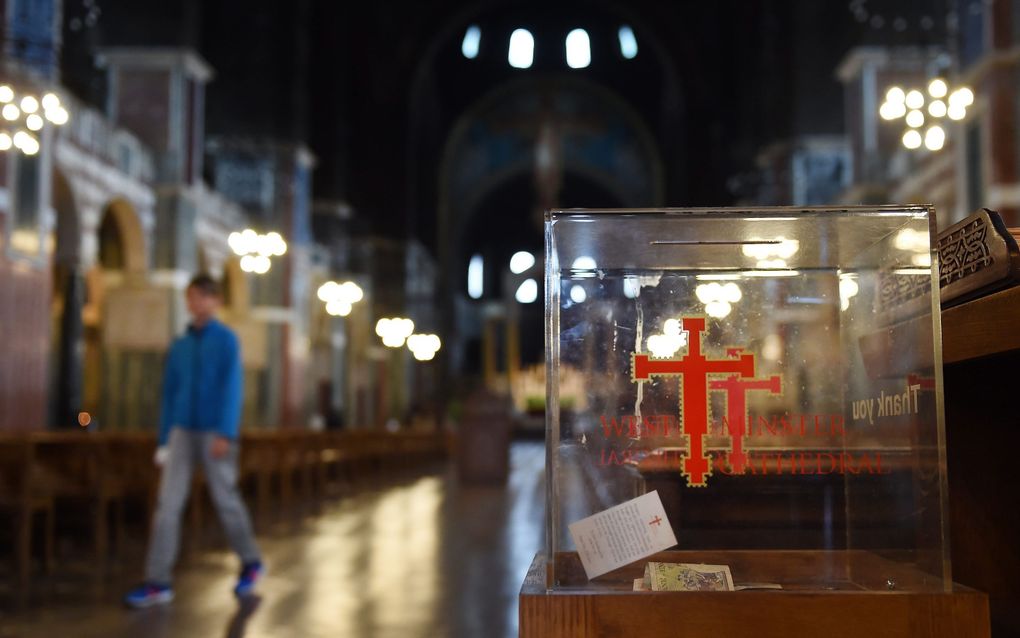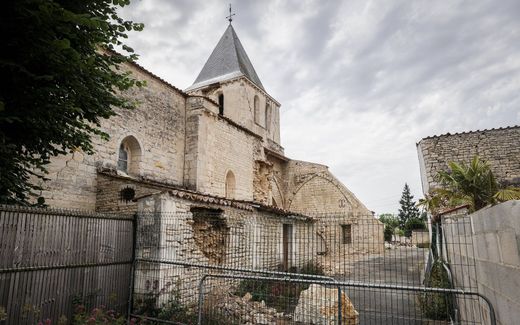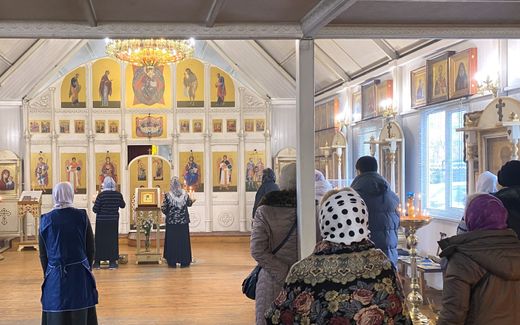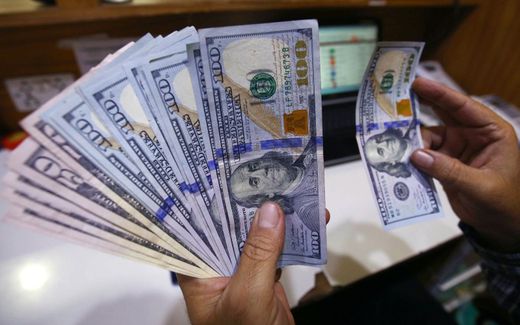As European churches go cashless, some remain sceptical

A box set up for donations at Westminster Cathedral in London, England. Photo EPA, Andy Rain
European Union
Tithing in many European churches is changing. Many are abandoning the offering plate and embracing the portable card reader, but some want to keep their cash collection boxes. As more congregations make the leap towards digital payment methods, will cash continue to be king, or will online giving be here to stay?
Stay up to date with Christian news in Europe? Sign up for CNE's newsletter.
Since COVID-19, government restrictions on church gatherings have increased the popularity of contactless payment systems such as the Dutch iDEAL or the Swedish Swift. These systems allow church members to contribute without having to be in church.
Now that five years have passed since then, many congregations are choosing to keep these digital payment methods as go-to ways for tithing. However, some are switching back to the tried-and-true cash collection box, as in the case of Archdiocese of Cologne in Germany.
The Archbishop's Vicariate General said in a written statement to CNE that they implemented a series of pilot projects to improve the digital giving of their visitors. Electronic card devices and payment machines were among the new devices in the trial period. However, they also explained that most of these were discontinued due to the high amount of effort or costs involved and that they will in any case continue to keep their traditional collection boxes.
The Cologne Cathedral rolled out digital collection boxes during the COVID pandemic, where visitors could make contactless payments and choose varying amounts. These collection boxes are still in use.
Going cashless
However, many other traditional Catholic and Protestant churches had already rolled out digital payment methods before the COVID-19 outbreak. And there are signs that the cashless trend in these churches is not stopping. In 2019, the Church of England unveiled a "portable device" with the help of technology firm, SumUp.
According to a BBC report, the device can be used for up to 500 transactions without charging. In that same year, the churches that had the digital collection boxes saw a 97 per cent increase in their church giving. Sum-Up's co-founder, Marc-Alexander Christ, believed the device was where "tradition met technology."
"As congregations around the UK carry less and less cash, the donation process needs to be as easy as possible in order to harness people's generosity," he says in the BBC report.
When the UK Catholic Diocese in the cities of Arundel and Brighton rolled out their contactless card donation scheme in 2019, it proved to be a success, according to a report by Aleteia.
The Diocese began the process by distributing 66 card readers throughout its churches. Fast-forward to 2023, and congregants contributed 650,000 GBP or 770,630 EUR from the terminals alone. The average donation was estimated to be 11,92 GBP or 14,13 EUR per transaction.
Beyond contactless
While contactless options remain popular, some congregations pursue methods beyond the card terminal. One cathedral in Barcelona, (Catedral de Barcelona), set up a vending machine to sell votive candles.
Candles are often lit in Catholic churches to commemorate deceased loved ones. As of 2018, a Catholic church in Amsterdam, Netherlands, (De Krijtberg), began using contactless payments for candles, as the church sees between 200 and 300 visitors on a daily basis.
This year, the Greek Orthodox Church is going beyond the realm of giving to the church by setting up a digital bank called Phos Bank, which means "Light" by Fin Tech (Financial Technology).
Congregants can manage their finances digitally, similar to the international banking app, Revolut. All documentation has been sent to Greece's Central Bank for final approval, as reported by Tovima.
With the rise in churches adopting contactless payments, some Christian leaders remain concerned. Mary Kenny writes in the Irish Catholic about the potential dangers as churches around Ireland and England go cashless.
She says the cashless society eases the accounting process by reducing potential problems such as dishonesty and tax evasion. However, it can also allow "Big Brother" to gain more control.
"The cashless society means that 'Big Brother' can track all your expenditure and revenues – be that the banks, the state or even global forces. Small organisations, like charities, which attract casual donations, lose out," she says.
In addition to concerns over increased government control, Kenny hopes that electronic payments will not completely replace cash in the future. She explains there is something valuable and "communal" when someone passes around the offering plate around the pews during Mass.
"Money may be "filthy lucre," but it also represents something tangible and real: it's not just a touch linked to an electronic procedure, it's the widow's mite, the Samaritan's Dinari, and the coins over which Our Lord pointed to the image of Caesar. It has history."
Related Articles









